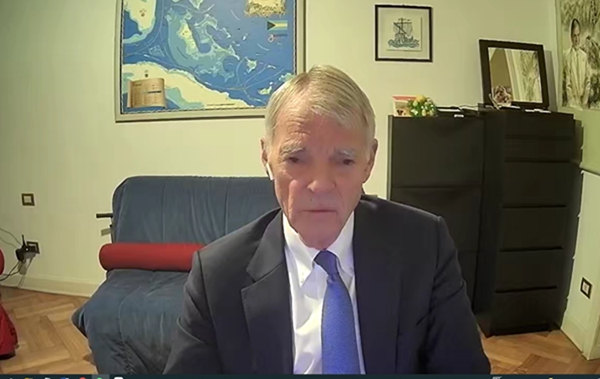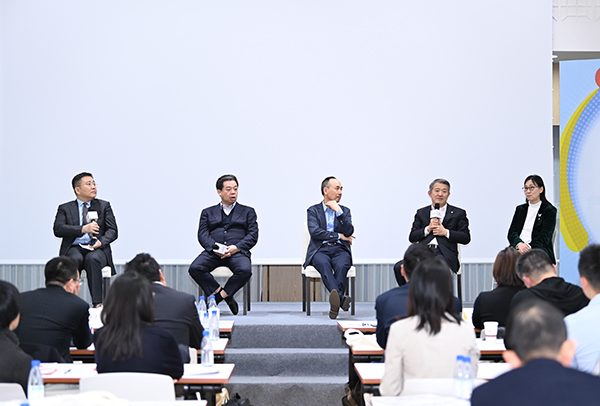National Development Forum Illuminates Path to Growth and Cooperation
Dec 30-2021
The sixth edition of the National Development Forum, a signature annual event of the NSD, was recently held at Cheng Ze Garden with the support of the think-tank affiliated with China National Petroleum Corporation (CNPC). Two Nobel laurates in economics joined scholars from various schools at PKU as well as government officials and business leaders in discussions on momentous challenges facing China and the world. The participants, through their farsightedness and wisdom, played a role in promoting national development and global integration.

In his speech, Prof. Joseph Stiglitz focused on China-US economic issues and evolution of the world order. He said the there was an “absolute necessity” for China and the US to cooperate in the face of a range of daunting challenges such as climate change, the pandemic, and the international rule of law. He lamented the Trump Administration’s zero-sum game mindset and policies in which the “self-interest was so evident”. The US needed to pay more attention to its domestic macroeconomic policies that were the root cause of its trade deficit. As of international organizations, the WTO and the IMF should revamp their rules to facilitate global cooperation and the flow of international public goods. For example, cross-border debt restructuring had loomed large and an adequate framework must be established to address the challenge in a timely and sufficient manner.

Prof. Michael Spencer believed that the US-China relations were not heading in the right direction due to misunderstandings on both sides. As the US shifted its attention to national security issues, there had emerged negative broad-based bipartisan sentiment towards China alongside an oblivion to China’s emphasis on peaceful rise. On the Chinese side, there was a feeling that the US wanted to prevent China from becoming a high-income, high-tech country and that the US system was failing; it’s normal that countries had ups and downs, he pointed out. As the world embarked on transformation in four major areas: digital, energy, biomedical, and economical, which presented challenges too great for countries to waste time, “I don’t think we have the luxury of picking fights and getting sidetracked,” he said, adding that they should focus on confronting common challenges for common interests.
Following their speeches, the two economists had dialogues with Prof. Justin Lin Yinfu, Honorary Dean of the NSD, and Prof. Yao Yang, Dean of the NSD, on major bilateral and global issues.

Prof. Justin Lin Yifu, in his closing speech, emphasized that rapid development remained of utmost importance for China in the next 30 years. Despite having built itself into a moderately prosperous society in 2021, China still had a per capita GDP at roughly one fourth that of the US at purchasing power parity (PPP). To achieve the great revitalization of the Chinese nation, the ratio should be at least one half, and the only solution was for China to grow faster than the US, said Prof. Lin, adding that China’s rapid development would also be conducive to a more stable world order.
The National Development Forum also featured four sub-forums on management, South-South cooperation, digital China, and China-US energy.












